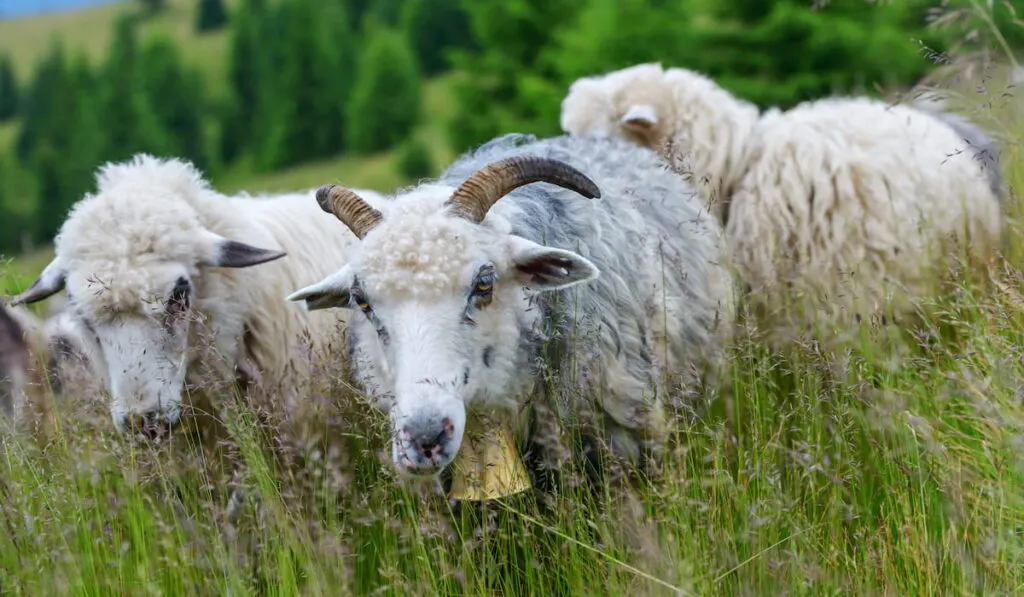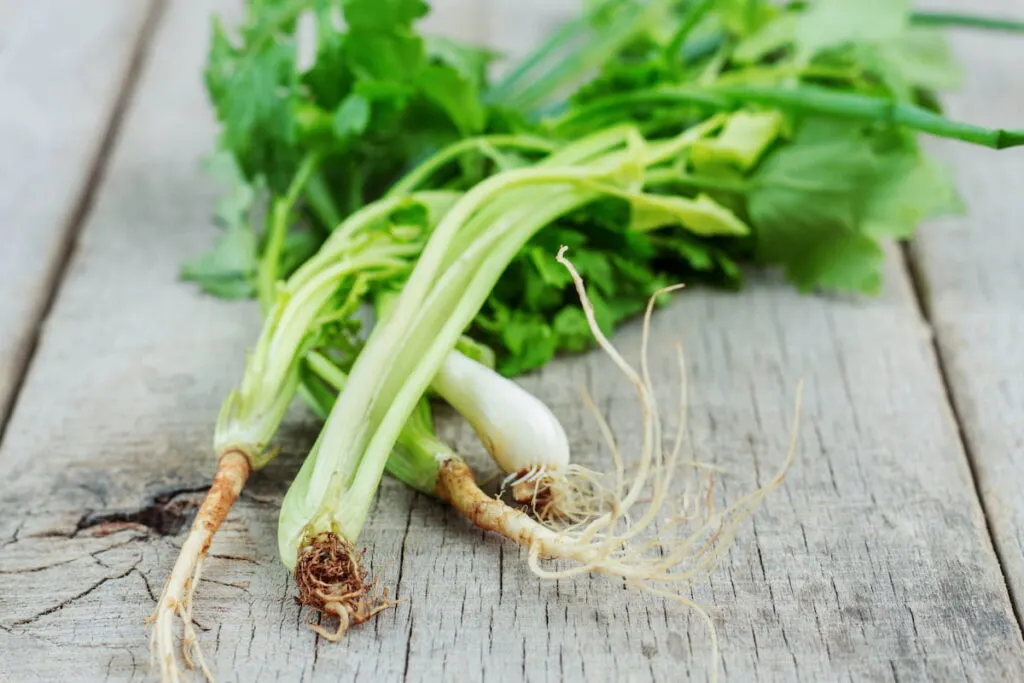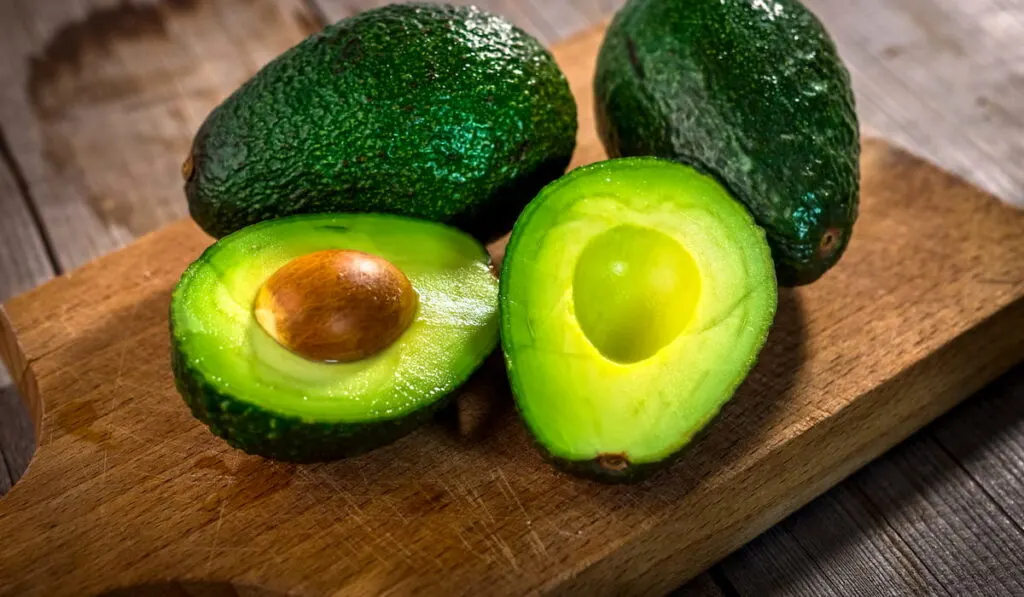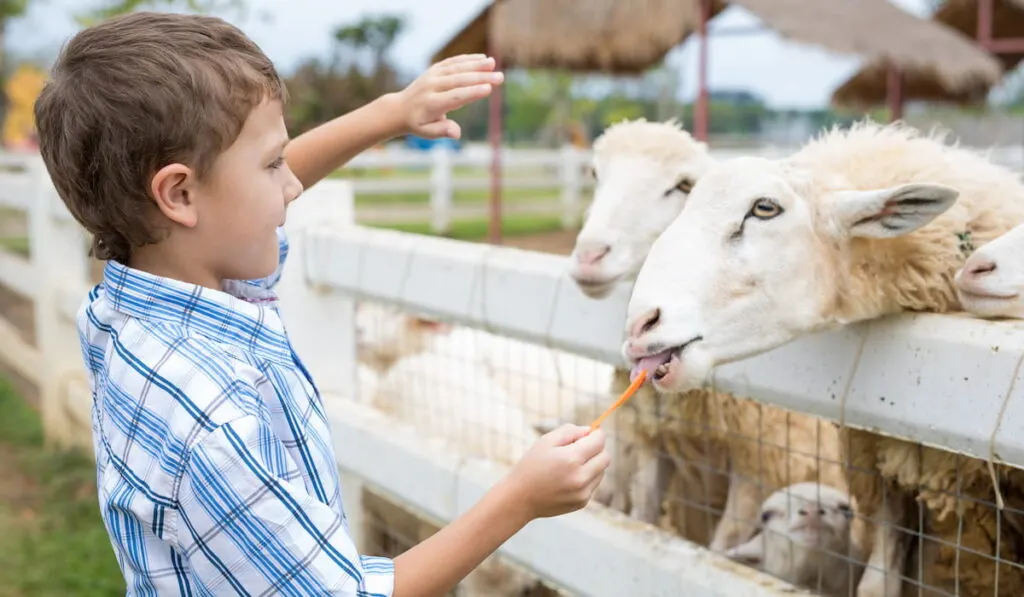Sheep eat a lot of grass. These animals always seem to be grazing.
There are certain types of grass that they absolutely love, but they’ll eat pretty much any type of grass you put them on.
But what about vegetables? If you’re not in a very grassy area, or if you need to supplement their diet, sheep can eat a wide variety of vegetables as a treat or for extra nutrition.
A lot of sheep owners and caretakers want to go the extra mile in making sure their sheep have a healthy diet.
Feeding them vegetables like celery, squash, carrots, and broccoli will put a little pep in their step and help you form a closer bond with the animals.

Sheep have very strong stomachs that can withstand almost anything.
There are, however, foods that you should avoid to keep them as healthy as possible.
We’ve put together a list of vegetables that you can feed to your sheep to help strengthen their immune system and keep them strong and healthy.
The Healthy Vegetables Your Sheep Can Eat
Even when you know you’re safely in the “vegetables that sheep can eat” category, you should still introduce new foods slowly to guarantee nothing out of the ordinary happens.
If you’re new to owning sheep, try giving them one new vegetable at a time and see how they react.
Like humans, sheep will vary a bit in terms of which vegetables they love and those they’ll stay away from.
Some sheep will prefer corn and others will love carrots more. After a while, you’ll dial in on which vegetables your sheep love and can create a custom diet just for them.

Here are some great vegetables to start with:
- Celery-Celery is fibrous and great for your sheep’s digestion.
You can buy it at low prices and don’t have to do a lot to prepare it.
People love feeding their sheep celery because it’s high in water content, and the long stalks make it easy for friends or little kids to get up close and feed it to them. - Pumpkin-Preparing pumpkin takes a lot of work. It’s a great choice, though, because pumpkin prices are pretty low.
So it is a good choice for budget-conscious sheep owners.
You will have to chop your pumpkin into chunks that your sheep can eat, but they’ll gobble it up happily. - Corn-Sheep love corn and the good news is that you can feed it to them husk and all.
You can feed them by hand or just plop them down on the ground and the sheep will gobble it right up. - Cabbage-Cabbage is cheap and plentiful, and sheep love to eat it.
This leafy vegetable can be chopped up and spread around to add a bit of diversity into their diet, or you can plop an entire head of cabbage in their feeding area for them to take chunks out of. - Cauliflower/Broccoli-We’re grouping these two vegetables because the preparation is pretty much the same for both.
All you have to do is section them off into decent-sized stalks and your sheep will have a great meal. - Carrots-Carrots are another vegetable that don’t cost a ton of money and are great for hand-feeding sheep.
The satisfying crunch of carrots and their high water content make them a favorite among sheep, and once you flash a handful of carrots, your sheep will come running.
You can keep a supply on hand when you want some quality time or while you inspect your sheep to make sure they’re doing well. - Beets-Beets are a vitamin-rich vegetable that sheep love. Your sheep will likely eat the entire thing along with the roots and leaves, which makes preparation a lot easier.
Beets are usually affordable, especially when you’re buying them raw and uncut.
Some Foods to Avoid
The list of vegetables your sheep will love is a lot longer than the things they can’t eat.
Still, you need to be aware of things that will make your sheep sick or worse. Avoiding these foods will keep them in a great mood, and help them live a longer, healthier life.

A big part of raising healthy sheep is watching to make sure that poisonous plants don’t grow in your yard or on your farm where they graze.
Here’s what not to feed your sheep:
- Kale
- Avocados (we know it’s a fruit but still)
- Raw potatoes
- Acorns
In addition to these, there are also a lot of plants like nightshade and rhubarb leaves that can make them sick.
Keep a close watch on what they’re eating and track how their digestion reacts. If your sheep vomit or have diarrhea, it’s a sign they should be staying away from whatever they ate.
Eliminate things until the problem goes away or keep them on a strict diet and slowly introduce new vegetables as you go.
Tips for Adding Vegetables into Your Sheep’s Hay Diet
Hay will be your sheep’s staple food.
Sheep, like many other farm animals, have four stomach chambers, and hay keeps them stable by preventing bloat and other health complications.
When you’re deciding on what type of hay to buy for your sheep, a good rule of thumb is that they will prefer fine, leafy hay over something more coarse.
For example, they love alfalfa and orchard hay.
One thing you have to know when buying hay is the fiber-protein balance and vitamin content in whatever hay you buy.
Some hay is higher in fiber and low in protein.
Once you know what the ideal combination is, you can supplement with vegetables, oats, and other foods accordingly.
You should add new foods into their diet slowly and track how they react.
Sheep aren’t going to tell you how they feel, and a lot of farm animals will keep eating foods that are bad for them, so you’ve got to be the one to stop them from eating anything that is not good for them.

Using Vegetables as a Healthy Snack
Feeding your sheep vegetables as a healthy snack has a lot of benefits.
First, it will keep feed costs manageable. A lot of new owners are surprised at just how much food sheep will eat, so the numbers may become important at some point.
Second, they’re a great source of nutritional supplements to keep them looking and feeling their best.
Vegetables are also a great way to build certain behavior incentives.
Many owners use vegetables to bring sheep over when they need to get them ready for shearing or give them vaccinations.
If you need your sheep to avoid a certain part of the pasture while a project happens, you can do that with vegetables as well.
Conclusion
As you take note of the vegetables that your sheep love and do not negatively affect their digestion, you can keep giving them as treats to help build their immune system and to form a close relationship with them.
They’ll still mostly eat the grass, clover, and other plants that are on your land, but vegetables are a great way to add some more flavor and vitamins into the foods they eat every day.
